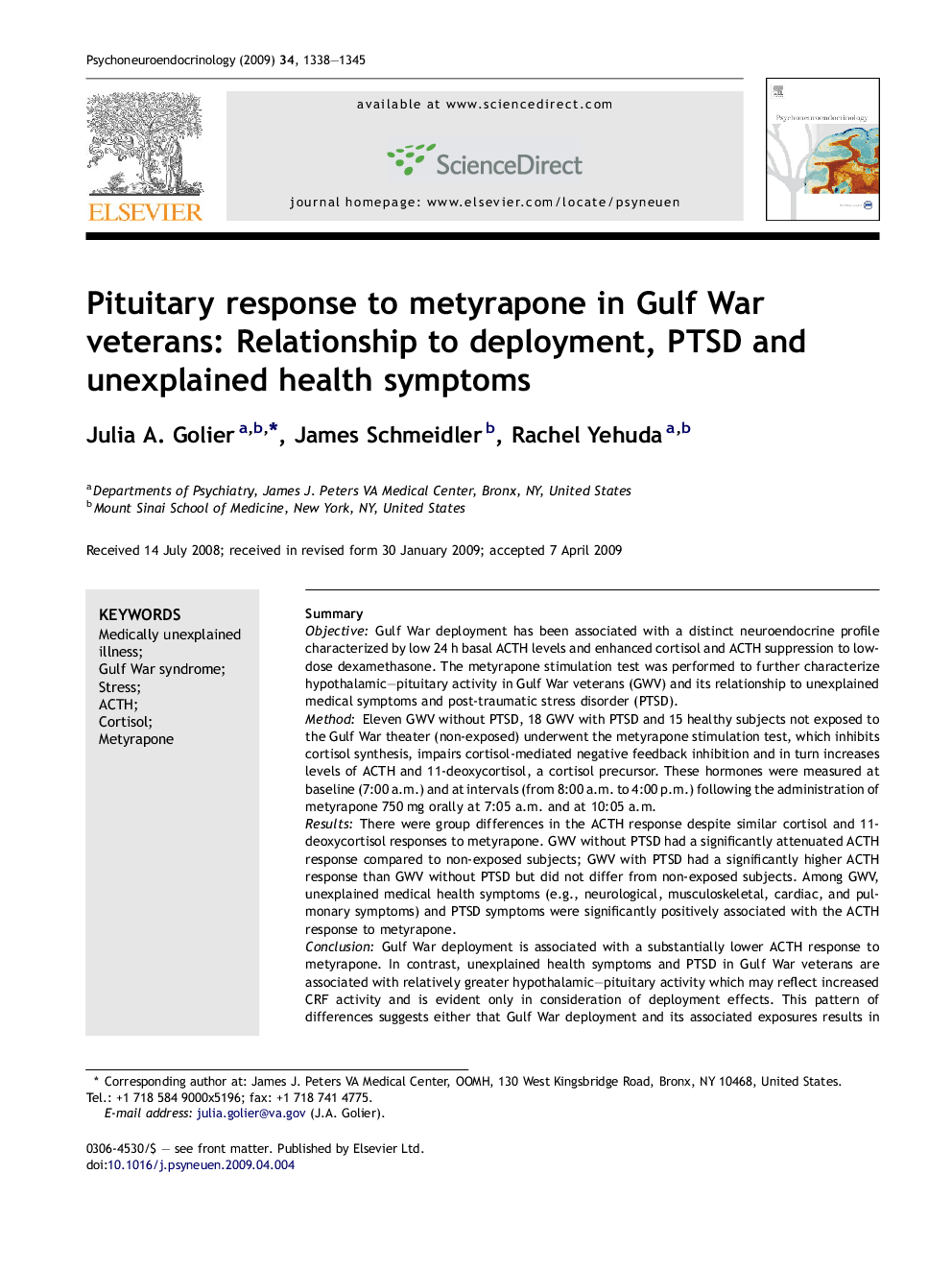| کد مقاله | کد نشریه | سال انتشار | مقاله انگلیسی | نسخه تمام متن |
|---|---|---|---|---|
| 336720 | 547194 | 2009 | 8 صفحه PDF | دانلود رایگان |

SummaryObjectiveGulf War deployment has been associated with a distinct neuroendocrine profile characterized by low 24 h basal ACTH levels and enhanced cortisol and ACTH suppression to low-dose dexamethasone. The metyrapone stimulation test was performed to further characterize hypothalamic–pituitary activity in Gulf War veterans (GWV) and its relationship to unexplained medical symptoms and post-traumatic stress disorder (PTSD).MethodEleven GWV without PTSD, 18 GWV with PTSD and 15 healthy subjects not exposed to the Gulf War theater (non-exposed) underwent the metyrapone stimulation test, which inhibits cortisol synthesis, impairs cortisol-mediated negative feedback inhibition and in turn increases levels of ACTH and 11-deoxycortisol, a cortisol precursor. These hormones were measured at baseline (7:00 a.m.) and at intervals (from 8:00 a.m. to 4:00 p.m.) following the administration of metyrapone 750 mg orally at 7:05 a.m. and at 10:05 a.m.ResultsThere were group differences in the ACTH response despite similar cortisol and 11-deoxycortisol responses to metyrapone. GWV without PTSD had a significantly attenuated ACTH response compared to non-exposed subjects; GWV with PTSD had a significantly higher ACTH response than GWV without PTSD but did not differ from non-exposed subjects. Among GWV, unexplained medical health symptoms (e.g., neurological, musculoskeletal, cardiac, and pulmonary symptoms) and PTSD symptoms were significantly positively associated with the ACTH response to metyrapone.ConclusionGulf War deployment is associated with a substantially lower ACTH response to metyrapone. In contrast, unexplained health symptoms and PTSD in Gulf War veterans are associated with relatively greater hypothalamic–pituitary activity which may reflect increased CRF activity and is evident only in consideration of deployment effects. This pattern of differences suggests either that Gulf War deployment and its associated exposures results in enduring changes in pituitary function or that reduced hypothalamic–pituitary activity protects against the development of PTSD and other deployment-related health problems.
Journal: Psychoneuroendocrinology - Volume 34, Issue 9, October 2009, Pages 1338–1345